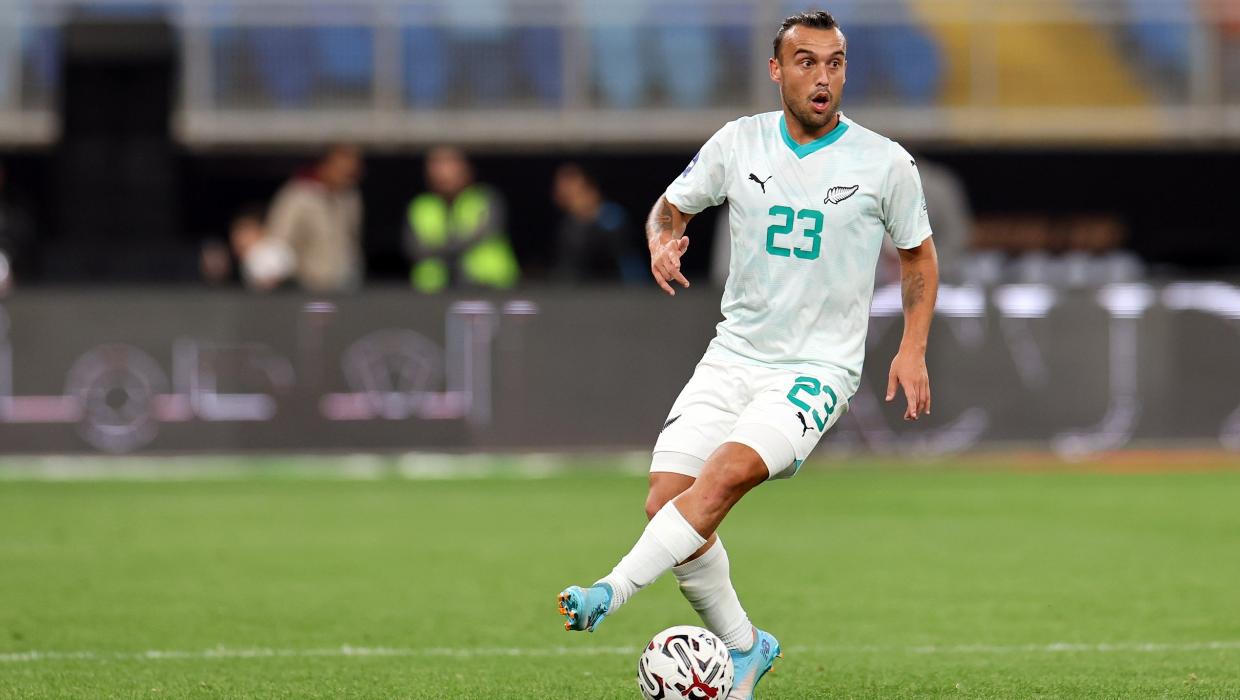Sports
Australian Football in Crisis: Major Spot-Fixing Scandal Unveiled

In a dramatic turn of events, Australian football has been rocked by a significant spot-fixing scandal involving players from Macarthur FC. On May 3, 2024, a multi-agency strike team from the New South Wales (NSW) Police executed a search warrant at an apartment in Parramatta, Sydney, resulting in the arrest of New Zealand footballer Clayton Lewis on charges related to betting corruption. This operation was part of a broader investigation, codenamed Strike Force Beaconview, which uncovered a scheme where players allegedly received payments to manipulate match outcomes.
As officers stormed the apartment at dawn, they found Lewis waking to the reality of his arrest. He was charged with accepting payments of up to $10,000 to deliberately receive yellow cards during matches, facilitating illegal gambling activities. The images of his arrest, punctuated by his casual attire — a hoodie, track pants, and slippers — starkly contrasted with the gravity of the charges against him.
At a press conference, Assistant Commissioner Michael Fitzgerald emphasized the severe consequences of such actions. “While $10,000 may seem a lot of money to a young sportsperson, we will advise that it is incredibly insignificant when you consider the damage to their reputation, their livelihood, and their future,” he stated.
Under police questioning, Lewis remained silent about the allegations, unaware that investigators had already recorded a conversation he had in a holding cell. In that exchange, he confessed to following orders from his captain, Ulises Davila, to obtain a yellow card in a previous match, revealing a troubling connection to the scheme.
Details of the Scheme and Its Fallout
The investigation revealed that Davila, a respected figure in the A-League, was the alleged orchestrator of the corruption scheme, maintaining contact with an organized crime figure in South America. Court documents indicate that Davila faced pressure to achieve specific results during matches, which led him to recruit Lewis, who was known to have a gambling addiction.
Lewis’ lawyer, Gabrielle Bashir, argued that her client was exploited due to his vulnerability and that Davila’s influence played a significant role in his involvement. “Not only was he targeted, he was asked to do it by someone who was in a position of power and influence over him,” she explained.
The consequences of Lewis’ actions became apparent during his sentencing hearing at the Sydney Downing Centre on March 15, 2026. Both Lewis and former teammate Kearyn Baccus pleaded guilty to engaging in conduct that corrupts a betting outcome. They faced a crowded courtroom where the media awaited updates on their case.
The court heard how Lewis, once a promising athlete, had seen his life unravel due to his involvement in the scandal. He was suspended by Football Australia and had lost eligibility to represent the All Whites. His lawyer highlighted that Lewis now works as a “pick packer” in a distribution centre, a stark contrast to his previous life as a professional footballer.
The Broader Implications for Australian Football
The fallout from this scandal extends beyond individual players. The investigation into betting corruption has raised alarms about the integrity of sports in Australia, with gambling oversight agencies flagging suspicious betting patterns linked to Macarthur FC matches. The investigation discovered that significant wagers were placed just before the match against Sydney FC, raising concerns about the potential manipulation of game outcomes.
Detective Superintendent Peter Faux of the organized crime unit emphasized the complexities of these investigations, noting the international nature of organized crime’s involvement in sports betting. He acknowledged the challenges faced by law enforcement in gathering evidence, which often requires collaboration across borders.
At the conclusion of the sentencing hearing, Magistrate Michael Blair issued a two-year community release order for both Lewis and Baccus, reflecting the seriousness of their conduct while considering the circumstances. The magistrate noted the power imbalance in the relationship between Lewis and Davila, which significantly influenced Lewis’ involvement in the scheme.
Lewis was ordered to pay $10,000 in penalties and to continue psychiatric treatment for gambling addiction and depression. His case serves as a cautionary tale for athletes, illustrating the long-term consequences of engaging in corrupt practices.
As the dust settles, the implications of this scandal reverberate through Australian football, prompting calls for a deeper examination of gambling addiction and its intersection with sports integrity.
-

 World5 months ago
World5 months agoTest Your Knowledge: Take the Herald’s Afternoon Quiz Today
-

 Sports5 months ago
Sports5 months agoPM Faces Backlash from Fans During Netball Trophy Ceremony
-

 Lifestyle5 months ago
Lifestyle5 months agoDunedin Designers Win Top Award at Hokonui Fashion Event
-

 Entertainment5 months ago
Entertainment5 months agoExperience the Excitement of ‘Chief of War’ in Oʻahu
-

 Top Stories2 weeks ago
Top Stories2 weeks agoTongan Star Eli Katoa Shares Recovery Update After Surgery
-

 Sports5 months ago
Sports5 months agoLiam Lawson Launches New Era for Racing Bulls with Strong Start
-

 World5 months ago
World5 months agoCoalition Forms to Preserve Māori Wards in Hawke’s Bay
-

 Health5 months ago
Health5 months agoWalking Faster Offers Major Health Benefits for Older Adults
-

 Lifestyle5 months ago
Lifestyle5 months agoDisney Fan Reveals Dress Code Tips for Park Visitors
-

 Politics5 months ago
Politics5 months agoScots Rally with Humor and Music to Protest Trump’s Visit
-

 Top Stories5 months ago
Top Stories5 months agoUK and India Finalize Trade Deal to Boost Economic Ties
-

 Health3 months ago
Health3 months agoRadio Host Jay-Jay Feeney’s Partner Secures Visa to Stay in NZ









